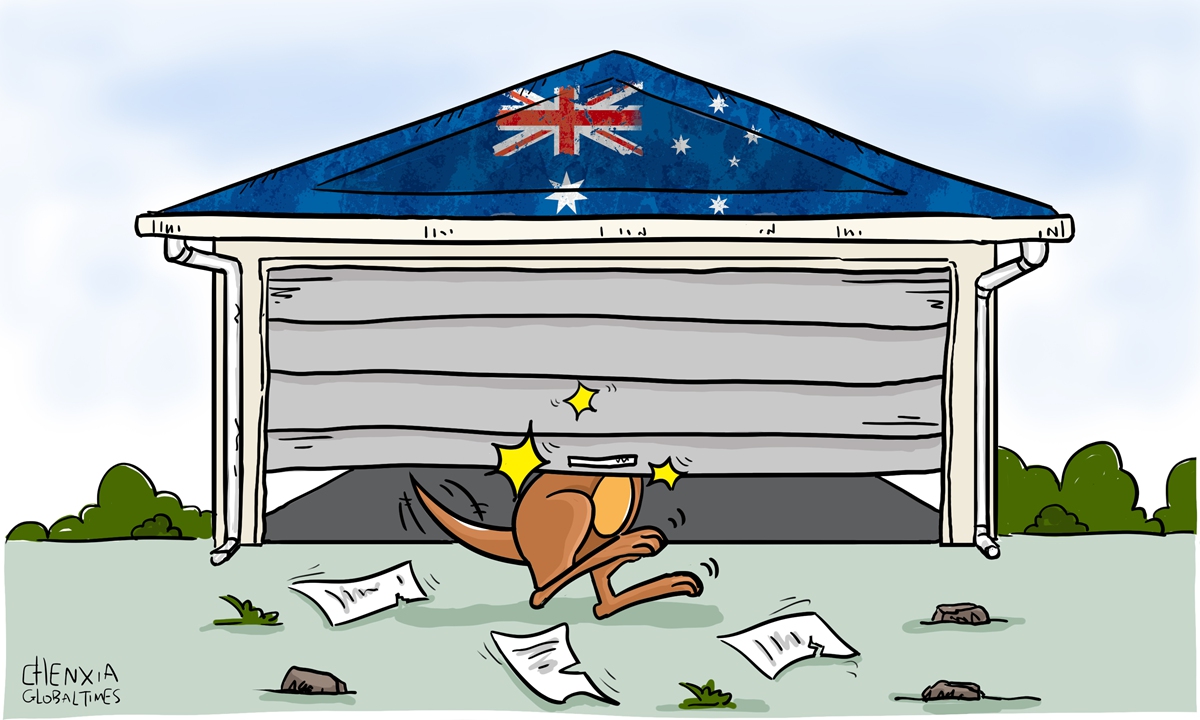Limited scientific cooperation with China would hurt Australia
By Yu Lei Source: Global Times Published: 2020/7/23 21:04:54

Illustration: Chen Xia/GT
In addition to largely benefiting from economic cooperation with China, Australia is reportedly enjoying a China-led "knowledge boom," as China is overtaking the US as the country's leading international partner in the publication of scientific research. If Australia blindly limits China-Australia scientific research cooperation, it will further hurt its own economic interests.
One in six of Australia's 85,351 scientific publications last year involved at least one China-affiliated researcher, and the number of partnerships increased 13.1 percent year-on-year, according to a Financial Times report, citing data from the University of Technology Sydney.
Massive economic cooperation between the two countries has fueled related scientific research, aiming to further facilitate economic activities such as medical treatment and pharmaceuticals, which mainly benefit Australian exports. With relatively low population and an insufficient number of high-end scientific research personnel in universities, Australia has remained in tight cooperation with Asian researchers, with Chinese scientists accounting for a high proportion.
However, under the Morrison government's strategy of confronting China, Canberra has already enhanced scrutiny on bilateral scientific research in order to rule out cooperation in "sensitive areas." It has, for example, banned Chinese telecoms enterprise Huawei from participating in its 5G network construction, echoing the US' crackdown on Huawei under the guise of national security. Other than that, Australia doesn't in reality have many "sensitive areas" in which China could cooperate. The country does not have significant advantages in sectors such as space or missilery technology.
Scientific and technological cooperation between China and Australia mainly falls in commercial and civil areas. Canberra derives economic benefits from such cooperation.
Australia has also been harvesting benefits from China's rapid development in recent decades. China has thus far remained Australia's largest export market, accounting for about 30 percent of the total value of Australia's exports. As its trade relies heavily on the Chinese market, Australia cannot afford a complete decoupling from China. Instead, the Morrison government is seeking a semi-decoupling from China: retaining China as its major market while reducing China's role as a supplier. Canberra has in recent years been ramping up efforts to replace China-made products with goods from Vietnam, Cambodia, Sri Lanka and other countries. And that has significantly decreased its investment from China.
As a Five Eyes member - and with high economic, political and security dependence on the US - Australia may continue to keel to the US in its anti-China campaign. After the US unreasonably asked China to close its consulate in Houston, it is even possible that Australia could follow suit and request a decreased number of Chinese diplomatic personnel in Australia.
China-Australia relations have already entered a historically low phase, but Canberra knows that it cannot afford to lose its largest export market. And in terms of scientific research, Australia is aware that Chinese talent is in high demand, particularly in the science and engineering sectors, including artificial intelligence. Though it may insist on further scrutiny in joint research, it is expected that the door to cooperation will not be shut down as that would cost Australia heavily.
The author is a chair professor at the Research Center for Pacific Island Countries, Liaocheng University. bizopinion@globaltimes.com.cn
Posted in: EXPERT ASSESSMENT